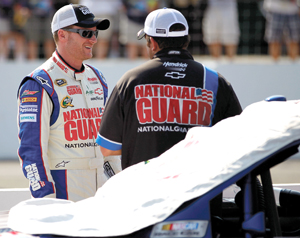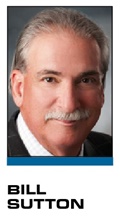Two recent legislative attempts, one local and one national, caught my attention because each one could have a dramatic impact on sponsorship revenue and, ultimately, the ability of corporations and other business entities to choose how they communicate to their target markets through sports and entertainment. Regardless of whether either eventually passes, the sports industry has to realize that it is being targeted and will be held much more accountable going forward.
In Washington, D.C., U.S. Reps. Betty McCollum (D-Minn.) and Jack Kingston (R-Ga.) sponsored an amendment to the 2013 defense appropriations bill to block military branches from sponsoring race teams. Many assumed this was limited to auto racing, but the amendment stipulated that none of the funds made available in the bill would be used to sponsor professional or semi-professional motorsports, fishing, mixed martial arts, wrestling, or other sporting events or competitors. The last catch-all should make everyone involved in selling and activating sponsorships uncomfortable and more than a little afraid. There are exceptions, most notably high school sports, so it would seem that the representatives have some idea of what a target market is. Thankfully, the legislation failed, but the vote was very close, splitting 216-202.
The Army’s marketing support director said the proposed amendment had nothing to do with its decision to sever ties with Stewart-Haas Racing after this season, but if lack of ROI was really the reason, wouldn’t the Army’s marketing agency have pulled out long before now? Who better to assess the effectiveness of the agreed-upon events and activities in terms of their ability to attract recruits than the recruiters of each branch of the service?
 |
National Guard has indicated that it will continue its sponsorship with Dale Earnhardt Jr.
Photo by: GETTY IMAGES
|
Anyone who has seen the Army set up at a sporting event realizes that it is much more than the branding of a car; it is the activation with the trailer, the obstacle course or climbing wall, and the interaction between the recruiters and the potential recruits that lies at the core of the sponsorship. The key is the communication and the interaction; the car is just one part of the equation.
The National Guard has indicated that it will continue its sponsorship in NASCAR, allocating more than $26 million on its 16-race program with Dale Earnhardt Jr. “Television advertising no longer carries the payoff it once did,” said National Guard President Gus Hargett Jr. “Today, you have to know how smart, fit young people think, where they live and play, and go to them.”
Hargett continued: “We applaud lawmakers … for asking tough questions about how and where scarce defense dollars are spent. But we believe military marketing experts should evaluate return on investment and determine without restriction where best to put increasingly scarce recruiting dollars.”
Logic such as that makes it hard to hear that applause doesn’t it? Simply stated, ROI is the gold standard for evaluating most types of spending and investment. We don’t need legislation to determine if it works.
The second piece of legislation has a very good intention at its core, but it is packaged within an overt attempt to legislate behavior and unfairly singles out the soft drink category, which has been a staple of sports sponsorship inventory since the days of Ty Cobb. I am speaking of New York City Mayor Michael Bloomberg’s attempt to combat rising obesity (the good intention) by banning the sale of sugary drinks in excess of 16 ounces (this is the discriminatory behavior). Bloomberg has previously championed a series of health-related regulations such as banning smoking in restaurants and parks and prohibiting artificial trans fat in restaurant food.
My criticism of the legislation is not its intent, which is to fight obesity, but its target, which is solely the soft drink industry. Bloomberg is not seeking to eliminate the sale of soft drinks, just eliminate the sale of soft drinks of 16 ounces or more, which are commonly sold at sporting events, concerts, movie theaters and so forth. What about other “larger portions” of other foods deemed as contributing to obesity? Will Dunkin’ Donuts be permitted to sell only munchkins? Will KFC have to reduce the number of pieces of chicken in its famous bucket? Will we limit the size of a pizza that can be delivered for lunch?
The answer is, of course not. It would be ridiculous and it cannot be controlled — which is exactly the point. Bloomberg acknowledges that drinks with free refills can be purchased, or that a person can purchase multiple beverages of less than 16 ounces at the same time.
Why and where will it stop? Will products high in sugar content be treated similarly to cigarettes and nicotine? Could they be banned from advertising on television, or purchasing signage in arenas, or sponsoring promotional giveaway items?
Instead of banning the sale of large soft drinks, why not take the approach of the tobacco and alcohol industries and begin allocating a portion of their revenue to support consumer groups and educate the population on the dangers of overconsumption? Why not take some of these profits and invest them in hiring P.E. teachers in schools where these programs have been eliminated?
Sports organizations need to work with their soft drink sponsors to draw attention to obesity and to fight it through increasing awareness and understanding, and most of all through increasing fitness via activity and exercise. Obesity is a major issue among children, but sugary drinks are only a piece of the puzzle. One can also point to too much time on the couch, school budget cuts, poor role models when it comes to nutrition — and the list could go on and on.
Let’s take a big gulp (sorry, couldn’t resist) of fresh air, get to work on solving the core of the problem, and put our dollars where our mouths are.
Bill Sutton (wsutton1@usf.edu) is the founding director of the sport and entertainment business management MBA at the University of South Florida, and principal of Bill Sutton & Associates. Follow him on Twitter @Sutton_Impact.





